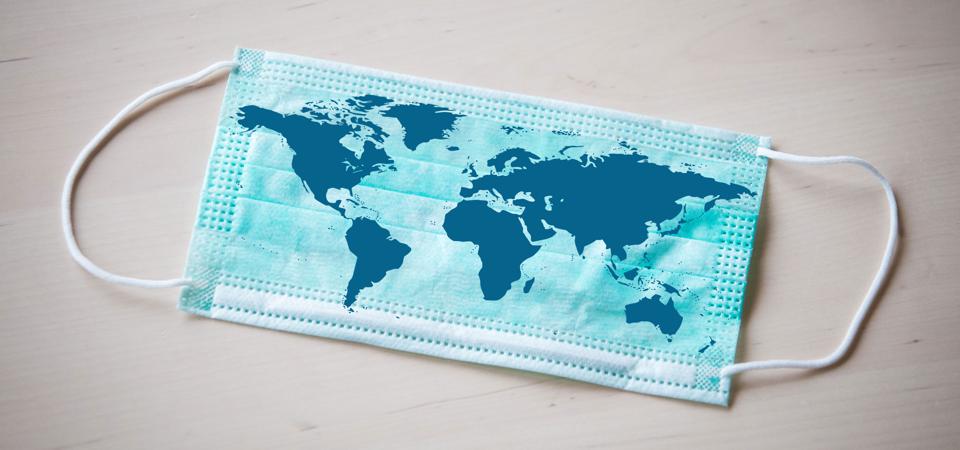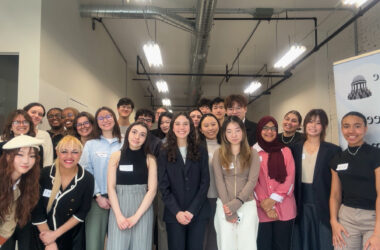Since the beginning of the COVID-19 pandemic in March 2020, immigrant women in Canada have experienced considerable negative impacts in areas such as employment, home life, social networks, and health. In response, Hani Rukh E Qamar, U1 Psychology and Neuroscience, founded the Canadian Advisory of Women Immigrants (CAWI) to empower immigrant women with services such as English classes, networking events, and mental health resources.
Qamar was inspired to create CAWI after noticing a clear disparity between immigrant and non-immigrant women in both Montreal and her hometown of Regina, Saskatchewan.
“There is always a divide between immigrants [and non-immigrants], not to mention the divide within the immigrant community as well,” Qamar said. “So, I really wanted to put an emphasis on the importance of diversity and create a network of women immigrants who are willing to offer opportunities to other women, as well as take [away] some leadership skills from our initiative.”
The pandemic has created additional financial strain for immigrant women, as many have lost their sources of income. In April 2020, Canadians lost nearly 2 million jobs—affecting certain employment sectors that many immigrants occupy. These sectors include accommodation and food services, for which immigrants accounted for 34.7 percent of the employed population in 2017.
While unemployment rates have risen during the pandemic, the issue of securing employment in Canada is not new to immigrant women. Immigrants faced higher rates of unemployment from 2006 to 2010 than both Canadian-born women and male immigrants, according to the Labour Force Survey.
Historically, immigrant women have struggled to have the education or job experiences obtained in their home countries recognized in Canada. A 2005 study of 15,400 immigrant women between the ages of 25 and 44 found that 37 per cent of women surveyed reported an inability to secure employment in Canada because of difficulties in transferring their foreign qualifications. Many also said that they lacked adequate Canadian job experience.
Qamar believes that systemic racism plays a significant role in the employment gap between immigrants and non-immigrants.
“Women immigrants face racism, systemic racism and other inequalities that prohibit them from getting the jobs they want,” Qamar said. “Although it is hard for women in general to get jobs, it is [especially] harder for women immigrants.”
Qamar also explained that lack of social networking is one of the biggest challenges that immigrant women face in employment security. To help overcome this obstacle, CAWI offers a number of networking programs, including the Sisterhood Project. The Sisterhood Project is designed to bring immigrant women together through activities such as café meet-ups, board game events, and reading nights. The goal is to foster relationships among immigrant women of different backgrounds.
In addition to the financial strain of COVID-19, immigrant women also face a greater risk of domestic violence during the pandemic. In a recent Statistics Canada survey, 12 per cent of immigrants reported concerns about violence in the home during the pandemic compared to seven per cent of non-immigrants. Qamar described this phenomenon as “the shadow pandemic.”
“The ‘shadow pandemic’ is basically how the pandemic is worsening the situations for women facing abuse, as many women are confined to their homes,” Qamar said. “They cannot go to school nor escape the horror realities that is their home, so COVID-19 has worsened [their] conditions.”
Furthermore, immigrant women have reported greater concern about their health during the pandemic than non-immigrants. In particular, non-status women working as frontline workers are at greater risk of poor working conditions, such as low pay, lack of paid sick leave, and a heightened risk of contracting COVID-19.
Organizations like CAWI are spreading awareness about the challenges that immigrant women face and offer invaluable support through their programming. At a time when many people are experiencing turmoil caused by the pandemic, it is important to recognize the ways in which gender, nationality, and legal status intersect to create additional barriers in employment opportunities, safety, and health.









